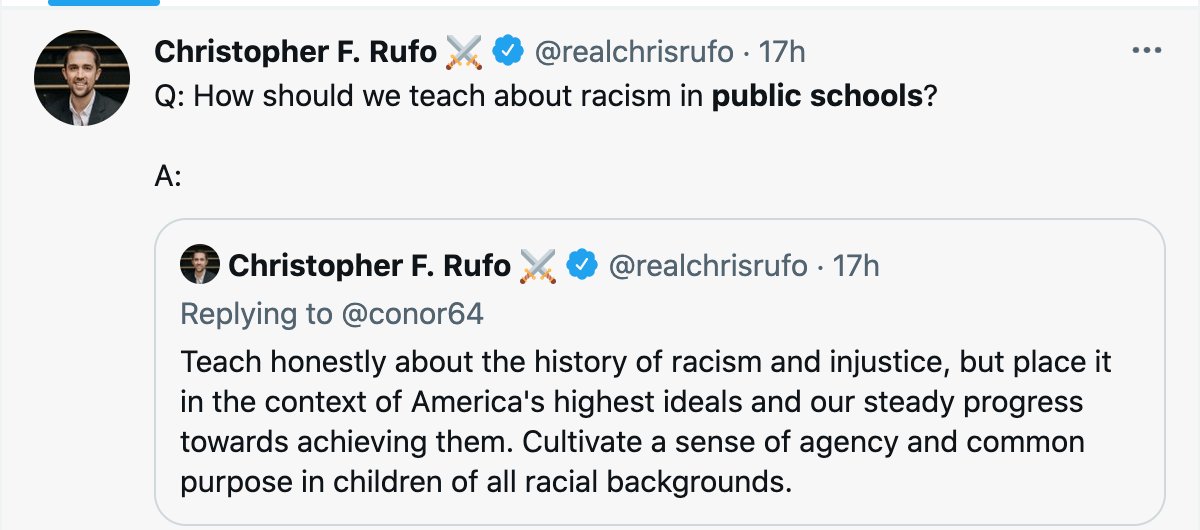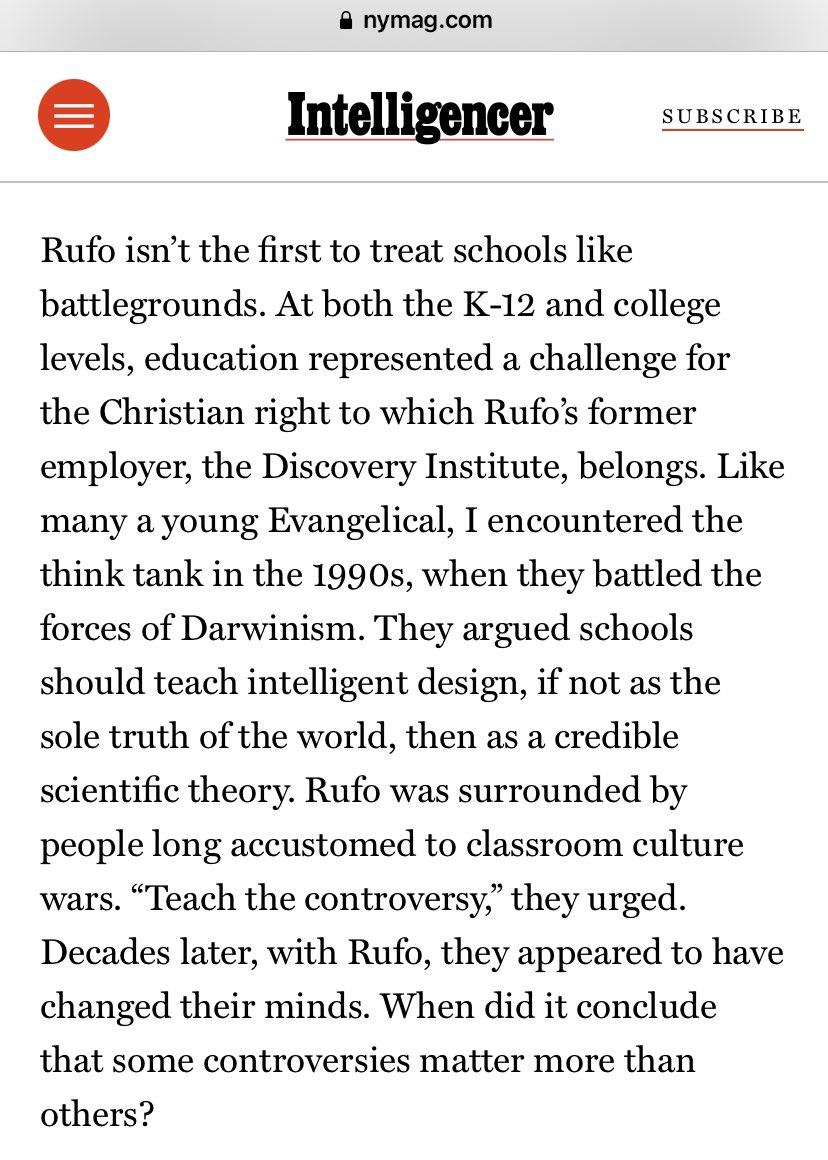
1) This is a short thread on how and why we're getting the 'culture wars' wrong. You think e.g. Christopher Rufo similar are culture warriors fighting on the battleground of ideas (perhaps so do they). But that's wrong. ...
https://twitter.com/realchrisrufo/status/1419810147673669635
2) A better analogy for Christopher Rufo & co. is Oreskes and Conway's concept of 'merchants of doubt.' In plain terms, they're not 'culture warriors'; they're like the scientists who were paid to convince the public that cigarettes don't cause cancer. ...
3) More specifically, what I mean by this analogy is that they are paid by dark money orgs and interest groups to undermine the credibility of public institutions. ...
4) We operate with a line of demarcation that I find pretty silly: we call e.g. discussions and debates about race 'cultural,' assigned to the 'culture wars,' but I think this obscures the extent to which there are facts about 'culture' as well. ...
5) It's not that the new merchants of doubt simply want to disregard basic 'cultural' facts, e.g. quote attribution or basic reading comprehension of legal texts, or lie about what 'CRT' is. Their goal is to undermine institutional credibility. ...
6) The reason for this is they grasp intuitively one of the greatest insights about knowledge & politics of the past several decades, even if they haven't read it: Steven Shapin's recognition that the 'crisis of truth' is actually a crisis of credibility: lareviewofbooks.org/article/is-the…
7) Which institutions are targets? This is shockingly uncomplicated. The same ones that have been targets of basic, mainstream partisan conservatism: higher ed., public K-12, and evolutionary and climate science. ...
8) Their goals are also straightforward. Note how they always specify *public* K-12 schools, because this is just another extremely basic partisan effort to support standard, mundane partisan conservative policy, school choice. It's that simple. 







9) The way to that goal is to undermine public trust in public institutions such as schools, by undermining their institutional credibility. Higher ed. of course is a target as well; they get both by framing CRT as coming from academia and being taught in kindergarten, etc.
10) There's some value in correcting the factual record about what e.g. CRT is and isn't, but I think it's likely more effective to treat this not as a 'culture war' but as a war on public institutions that stems from a war on science. ...
11) Because, per Shapin, who is correct, credibility is the thing. No credibility, no knowledge; no credibility, no education. No knowledge, no education, no problem for the plutocrats funding the new merchants of doubt. /end
Preemptive addendum: I think CRT as originally contrived in legal studies is useful and identifies and helps explain some plain empirical facts about race disparity, law, institutions. I am not, however, a CRT scholar, nor an uncritical proponent of it in the broad sense.
• • •
Missing some Tweet in this thread? You can try to
force a refresh






